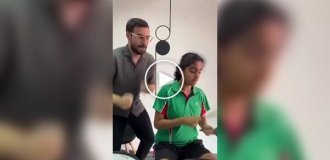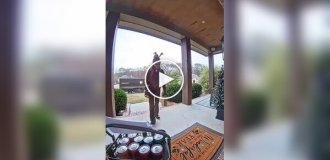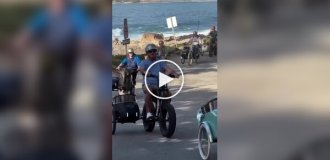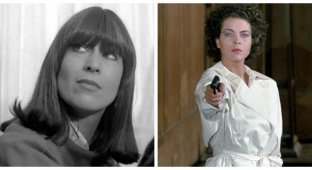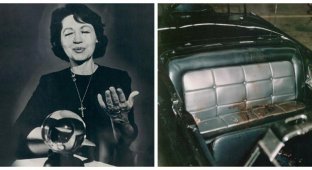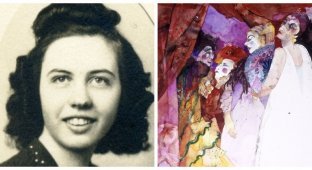From the weak will come the strong: the story of Marianne Bachmeyer (12 photos)
She wanted to become a famous model, but the death of her daughter completely changed her fate. The woman became famous for a completely different reason, which split people's opinions. 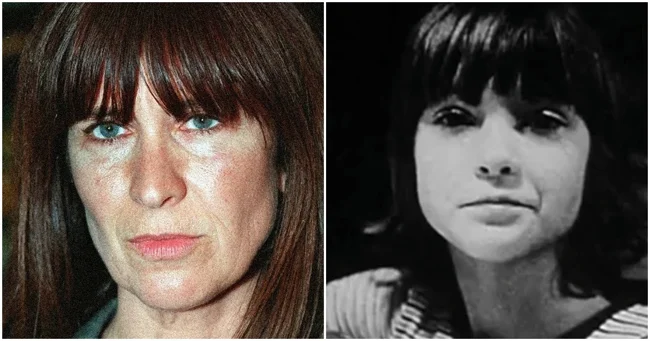
In 1950, Marianne Bachmeyer was born in the city of Sarsted in Lower Saxony. Her childhood can hardly be called cloudless - the atmosphere at home was aggressive, multiplied by the strictest religious principles. Marianne's father drank, and in the past he was even a member of the Nazi party. As a result, his wife and daughter left him, but the stepfather turned out to be no better and constantly bullied both of them.
It's her own fault! 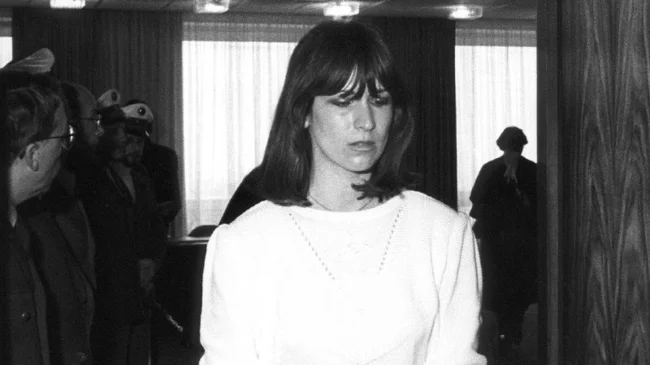
When Marianne was only nine years old, she was raped by a man who was close to the Bakhmeyer family. The girl did not receive any support, and her parents gave her an emotional rollercoaster, sometimes blaming her for what happened, and sometimes praising her and showering her with gifts so that she would not tell anyone. The story, as terrible as it may sound, was very standard for such situations: having entered adolescence, Marianne began to use her appearance to start "adult" relationships. The first pregnancy at 16. The second - at 18. The children were sent to foster families, and Marianne herself was simply kicked out of the house by her "caring" parents. No help, no support, and even blaming the child for being raped. A dream, not parents, right?
Daughter Anna is Marianne's only joy 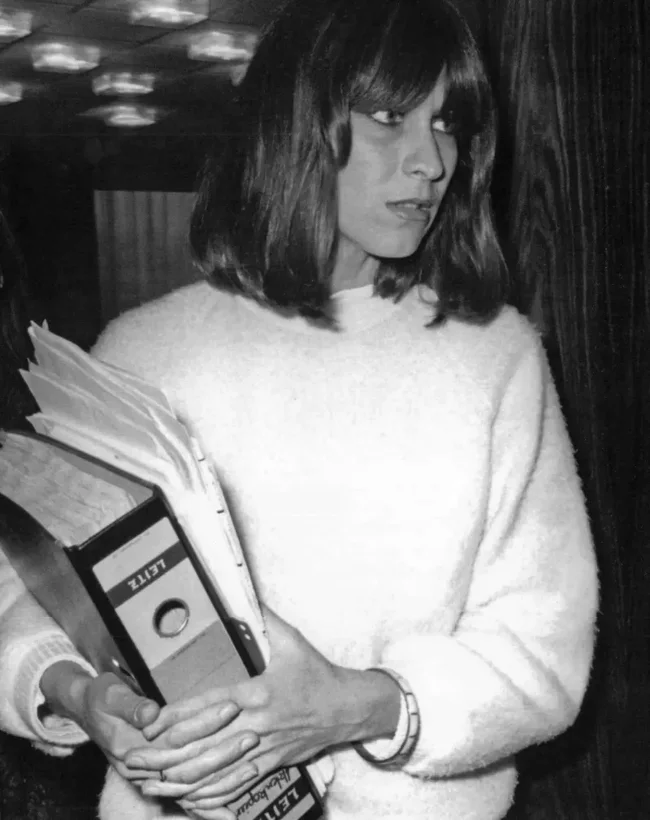
When Marianne was pregnant with her second child, she was raped again. She filed a police report, identified the rapist, but the court was too lenient towards the criminal - he was given a suspended sentence and was released immediately from the courthouse.
When Bachmeyer was 21, she began working in an Indian restaurant in Lübeck. There she entered into a relationship with the manager of the establishment, Christian, and when she became pregnant, it turned out that the man was not ready for children. The girl herself considered that this was her last chance to become a mother and build a normal, loving family. In 1972, Marianne gave birth to a girl, Anna, and gave her her last name, not her biological father's. 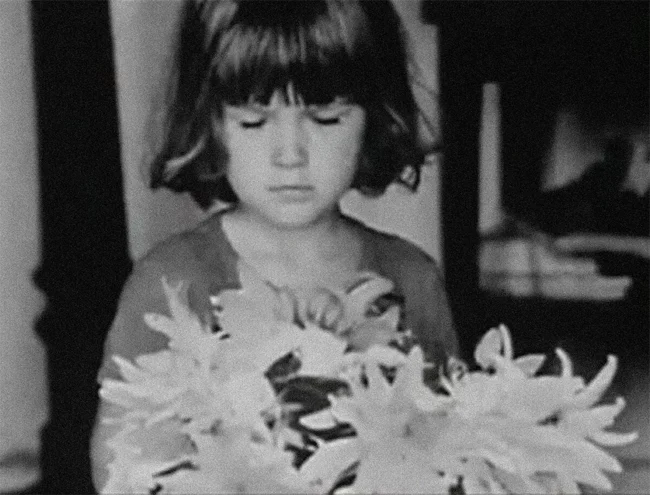
Anna Bachmeier
Being a single mother has always been difficult, regardless of time and country. Marianne tried to give her daughter everything that she did not have in her childhood - a happy childhood, love and care. Data on Bakhmeyer's income varies, but most of the information suggests that, thanks to the money she inherited, she managed to become a co-owner of the very Indian restaurant where she worked.
Anna, due to the fact that her mother worked a lot, spent a lot of time with her and became quite independent for her young age. Marianne later regretted it terribly.
The Fatal Day 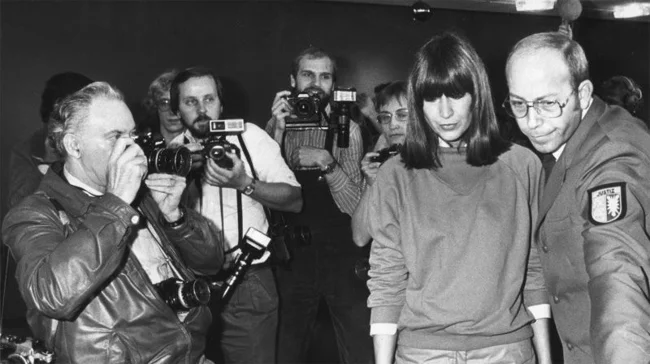
The fact that the girl did not have any support or help from loved ones and that she herself grew up in an aggressive environment did not help Marianne make only the right decisions.
Anna, on the contrary, was an open, cheerful girl, but at the same time with a very strong character and often defended her position in front of her mother. Simply put - she and Marianne often quarreled.
This is what happened on May 5, 1980. Anna was only seven years old when she once again quarreled with her mother and angrily went to school without her accompaniment. The school was nearby, but Anna decided to go to a classmate's house instead of going to class. On the way to her friend, the girl was called by her neighbor - the butcher Klaus Grabowski.
Butcher in Sheep's Clothing 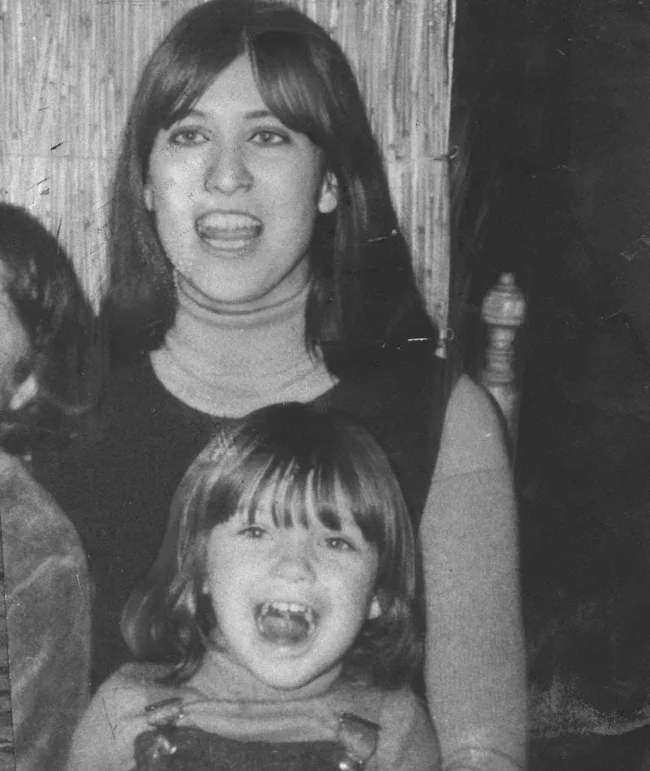
Marianne and Anna Bachmeier
The man was 35 years old, the butcher was kind and friendly and lived with his fiancée next to the Bachmeiers. Everyone knew and loved this couple, because only the police knew the dark side of Klaus Grabowski...
The butcher was a pedophile, previously convicted of raping two nine-year-old girls. He was chemically castrated instead of imprisoned. Grabowski took drugs that suppressed his libido. Only two years before meeting Anna, Klaus filed a petition to cancel the treatment, convincing the court that he had overcome his unhealthy attraction and was planning to get married and create a new social unit. The medication was canceled. 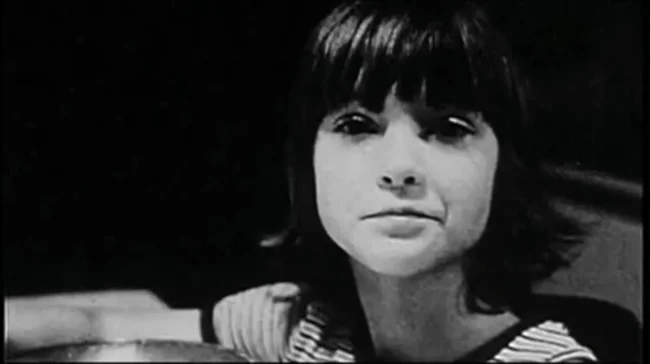
Anna
A charming man invited his little neighbor to come see him, saying that he had adorable kittens that she could play with.
As soon as the door of the apartment slammed behind Anna, she had no more chances to get out alive. For several hours, the butcher tortured the little girl and raped her several times. After all this, Klaus strangled Anna with his fiancée's stockings, then tied her up with them, put the girl in a box and carried her to the bank of the nearest canal.
Grabowski was detained that same evening, after his fiancée called - the man told her everything. At that moment, Anna was already being searched for, when Marianne found out that the girl never made it to school and did not return home at the usual time.
The body of the tortured Anna lay where Grabowski had left her.
The Daring Killer on Trial 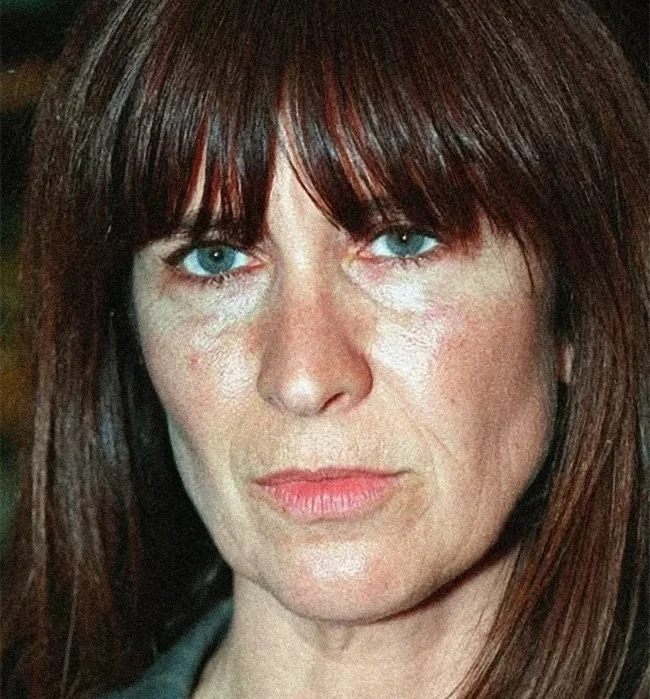
The trial began only in March 1981, almost a year after Anna's murder. Grabowski, who was known as a friendly and gentle person, showed himself to be completely different in court: he was rude to everyone, did not deny the fact of Anna's murder, but refused to admit to rape. Klaus also began to claim that the seven-year-old girl seduced him, and even extorted money from him, threatening to tell everyone how he had molested her.
It is not known whether the lawyer suggested Grabowski this line of behavior, or he thought of it himself, but the defense began to press the idea that Klaus's actions were due to hormonal and mental problems due to chemical castration. And he should be sent to a psychiatric clinic, not to prison.
Grabowski was extremely self-confident, and the strategy was very effective.
All the court hearings became torture for Marianne, who sincerely, as best she could and as best she could, loved her daughter. And Grabowski, looking into her eyes, called the seven-year-old girl "a little slut." The judge, by the way, agreed with Grabowski in some ways, claiming that the seven-year-old girl could have provoked the criminal, which, of course, shocked Anna.
Mother of Vengeance 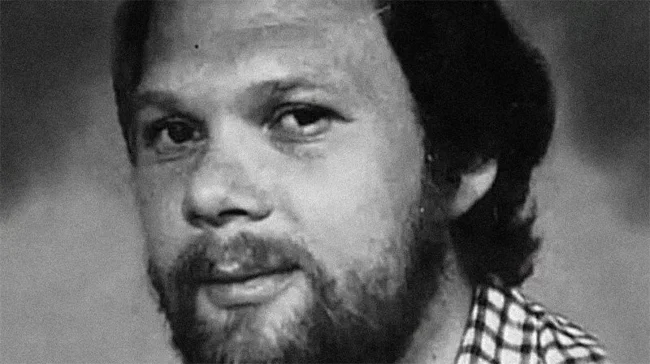
Klaus Grabowski
If anyone knew what it was like to rape a little girl and then blame her for what happened, it was her. The third and final court hearing had arrived. Grabowski was being interrogated again when Marianne Bachmeier stood up from the bench behind him, took a few steps, raised her hand with the Beretta and fired eight bullets at Klaus.
"I wanted to kill him, but shoot him in the face. Unfortunately, I had to shoot the pig in the back."
Marianne did not offer any resistance to the police and calmly handed the Beretta to the police officer. And so the lynching took place, in front of the judge and many witnesses. Of course, there is a question of how she brought the weapon into the courtroom, but in 1981 there were no frames or other detectors. The inspection was superficial and it was easy as pie to hide the gun in the folds of clothing. The Bachmeier case led to changes in the rules of inspection and their tightening.
Verdict 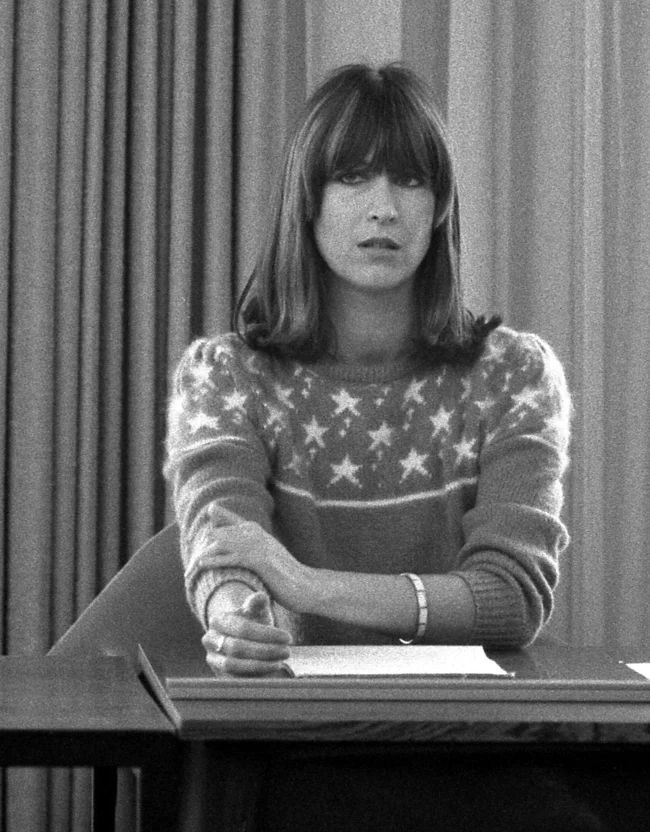
The German press aptly nicknamed Marianne "the mother of revenge", and society stood up for her. Those who sympathized with the unfortunate mother quickly collected one hundred thousand marks so that the woman could have a good lawyer.
And the lawyer really knew his business - Bachmeyer was found guilty of manslaughter. After the death of her only daughter, Marianne fell into depression and was initially able to find herself a Beretta in order to commit suicide. And the decision to kill Grabowski was an irresistible impulsive one. 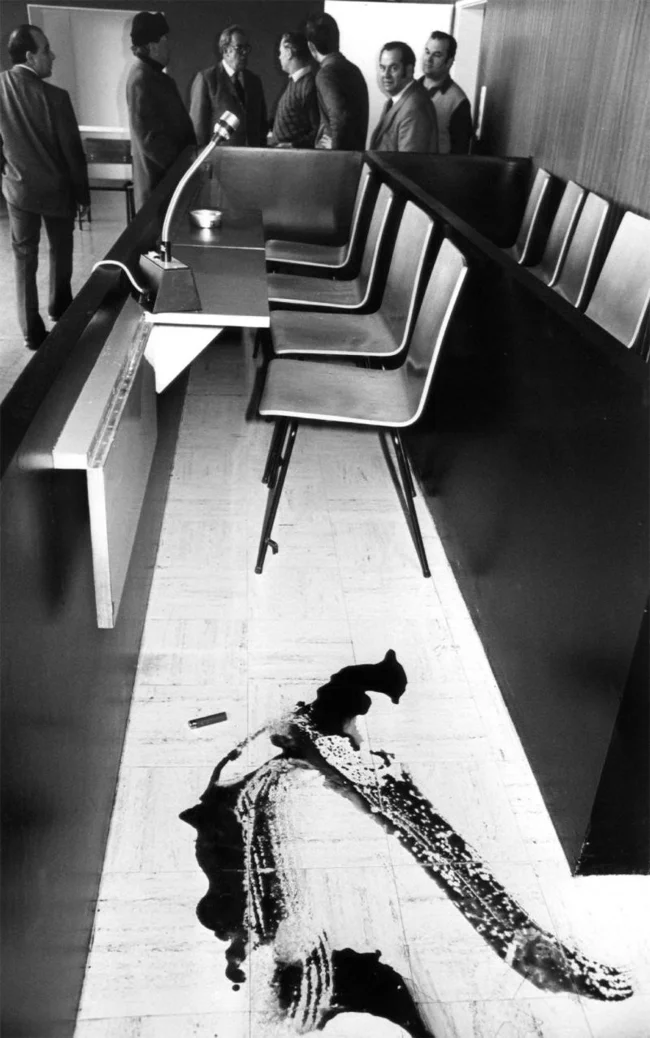
Marianne received a six-year prison sentence, but after serving less than half of her sentence, she was released on parole. She was asked to marry a school teacher, with whom she went to Ghana in 1985 (a humanitarian mission).
In 1990, Marianne got divorced, moved to Sicily and began working in her true calling - in a hospice. It was Bachmeier who took on the care of the most seriously ill cancer patients and regularly helped in the euthanasia department.
A few years later, the "mother of revenge" learned that she had pancreatic cancer. Knowing that she would not live long with this type of cancer, Marianne returned to Germany and there decided to openly tell her story from beginning to end. The journalist she chose received an exclusive interview and the opportunity to film the last days of Marianne Bachmeier's life.
On September 19, 1996, the woman passed away, wanting only one thing: to be reunited with her Anna after death. The tortured girl who was not destined to survive. 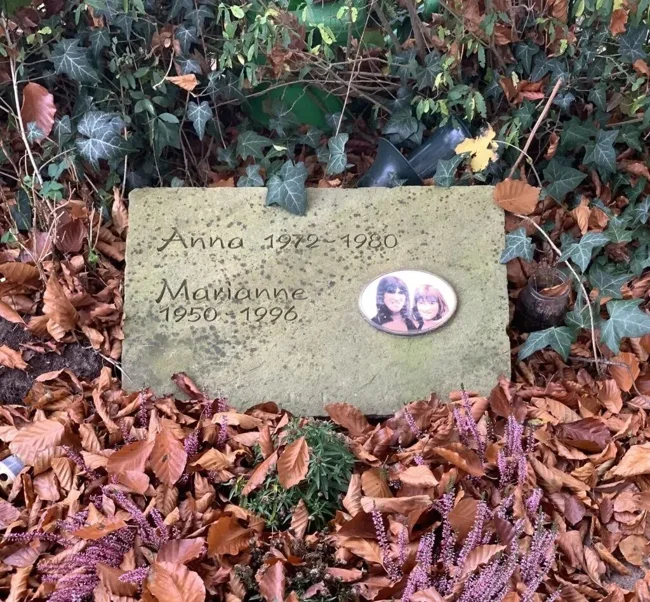
Marianna never regretted her actions
Perhaps, the obvious moral dilemma is not easy to resolve here. Is Marianne guilty? Or maybe her parents? That "family friend" who raped her little girl, and her parents, instead of supporting her, blamed their daughter for what happened? Did Marianne break down then or did she break down in the courtroom, seeing not only the cynical behavior of her daughter's killer, but also the support of Klaus from the judge?
Everyone definitely has their own conclusions.

